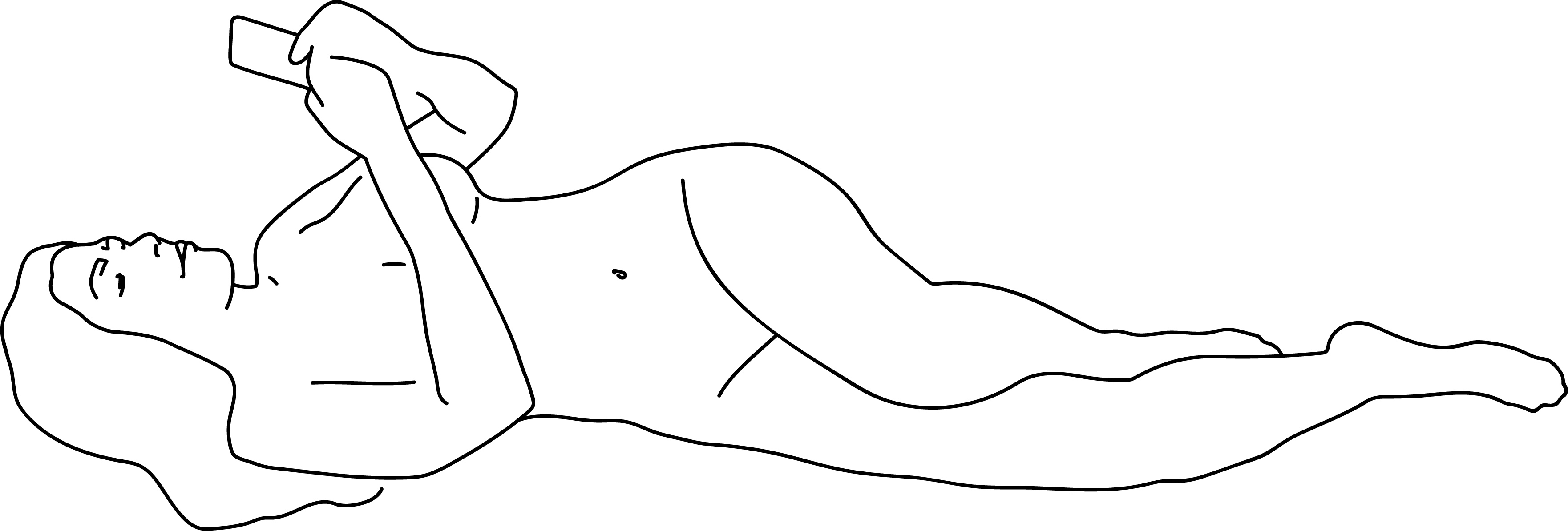17 of October
Azura Lovisa
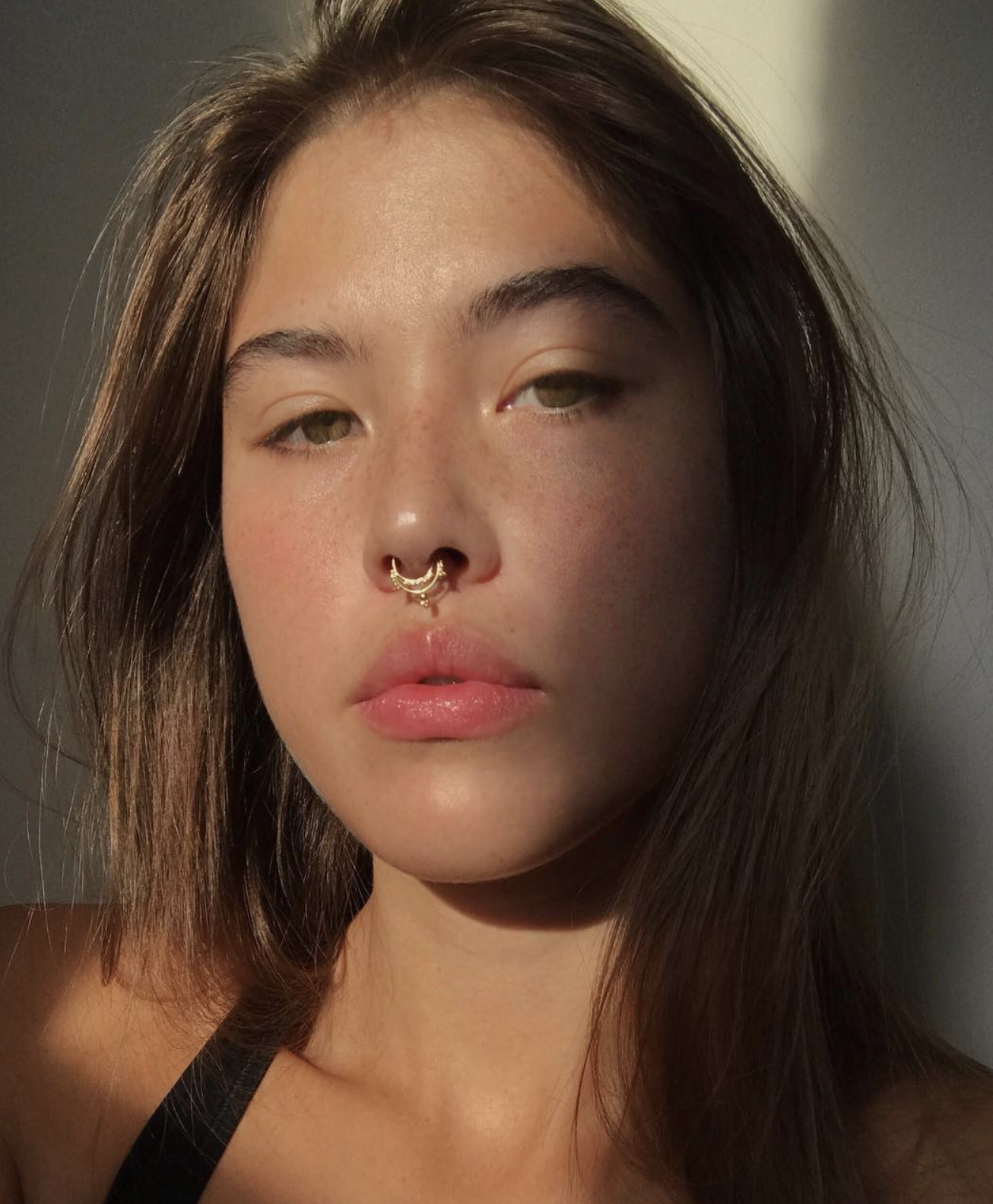
Azura Lovisa is a Swedish–Malaysian designer whose eponymous slow fashion label explores hybridity, transcultural exchange, and contemporary mythology through clothing. Born in Umeå, in northern Sweden’s Västerbotten county, to a Swedish father and a Malaysian mother of mixed Malay and Peranakan Chinese heritage, Lovisa grew up between cultures from the forests of Sweden to the vibrant, multicultural rhythms of Miami, where her family moved when she was seven.
Freed from the need to belong to one place, Lovisa finds home in fluidity in the meeting points between difference. Her designs reflect that ethos: seasonless, gender-fluid pieces that merge Southeast Asian aesthetics with Scandinavian minimalism, viewed through a postcolonial lens. Crafted from sustainable, handwoven, and naturally dyed textiles, her work draws on folklore, craft, ecology, and critical theory to build a world rooted in both history and imagination.
Grounded in nature, Lovisa’s creative practice is intertwined with her deep connection to the wilderness. Each year she embarks on solo hikes through Sápmi, north of the Arctic Circle days of solitude that she describes as returning to her truest self.
In an industry driven by speed and spectacle, Lovisa’s approach is quiet and intentional. “I don’t need the brand to grow into something I can’t tame,” she says. “What I’m building is something honest, aligned with my spirit and values.” With her eyes set on one day moving her studio to the countryside, she continues to shape a practice that honors slowness, craftsmanship, and the beauty of difference.
What is your cultural background and upbringing?
My father’s side is from Northern Sweden, Västerbotten county, where I was also born (in the city of Umeå). My mother’s side is from Johor Bahru, Malaysia – across the strait from Singapore – and comes from a mixed Malay and Peranakan Chinese heritage, with a Malay Muslim upbringing. However neither of my parents are religious and both left home in their youth to travel and work abroad, so I grew up being exposed to many different cultures, and we moved to Miami from Stockholm when I was 7. Miami’s Latin American and Caribbean influence and its position as a city where immigrants, Native Americans, African Americans, and of course international visitors all mingle further immersed me in a multicultural context.
![]()
How has growing up as Swedish-Malaysian shaped your worldview? Where do you feel most at home?
I think growing up between these cultures has freed me from a need or desire to feel “part of” a community in a way where my whole identity is defined, understood, or even perceived. I know a lot of people of mixed background say they feel lost or confused or like they’re never enough of something to feel they are accepted or can claim aspects of their identity. But I feel that it is the particular experience and perspective, unique to me, of how I have interpreted elements of my history and heritage that defines me, more than the objective facts of my provenance. We can never fully inhabit something so ungraspable and shifting as a culture, much less so if we can’t speak the language or haven’t grown up in a place. I left Sweden when I was seven and even though it is a huge part of who I am and how I see the world because my inner child still runs free in the memory of that place, and even though I speak Swedish which allows me to identify and feel a certain closeness, to be able to “be” Swedish in a way I can’t “be” Malaysian for my lack of living there or speaking Malay, as an adult I see how I will always be an outsider to both, and that is what defines my experience of being either. Being absolved from a need to “belong” to a particular place and culture means that I can find home wherever I go. I see a lot of value in hybridity, in multicultural fluidity – it is in multicultural society, in that kaleidoscopic multitude, that I find home. I love both countries and cultures in their distinct ways and I’m grateful to my parents for exposing me to both and teaching me to value points of difference and new experiences in diverse cultures above seeking comfort in the familiar.
All of that said, spending my early childhood years in Sweden really has shaped my soul. I spent a lot of time in the forest and near lakes and rivers. I give credit to Sweden’s culture of appreciation for and closeness to nature for making me who I am. So even in the most remote corners of Sweden – maybe especially there – I feel most at home.
What does a typical morning look like for you? Do you have any rituals, habits, or routines that help you start your day with intention?
I usually wake up around 8. I’ve never been an early morning person sadly. I’m honestly not great at keeping routines or practicing rituals, even though I have tried. I try to make time to meditate but am more inconsistent than I’d like to be. Probably the most important thing for me is starting the day with a good breakfast, because preparing food and eating really is one of my greatest joys. It helps me wake up and I’ve never been a quick and easy breakfast type of person. Often I’ll make something using lunch or dinner leftovers, because why not? Weather allowing I’ll always choose to eat outside in the garden when possible. And then I’ll either head to the studio or work from home, usually starting at 10. I don’t see the need to rush and start earlier than that when I work best later anyway.
In a world that’s increasingly digital, how do you create boundaries around your screen use? Do you have any practices that help you stay grounded and present in your offline life?
I’m not great at putting my phone down in my day to day. But when I’m out in nature, especially while hiking, I’m much more present. Time moves differently, you notice all of the small details in the environment – the way time manifests in the tides, the light, or opening buds. I’m not mindlessly scrolling in those moments but even then, I’m often taking photos and videos with my phone. I’ve also tried to make a habit of lighting candles in my room at night and reading before bed to wind down, rather than being on my phone, which feels great. And I refuse to interact with AI when I have a choice, although it’s being integrated into so many systems anyway – but I’ve never used ChatGPT or other forms of generative AI, which at least helps me feel like my mind isn’t fusing with digital consciousness and that my thoughts and ideas are still my own. I try to practice mindfulness and return to myself, be here now, when I notice time slipping away gazing into the screen.
But the one thing I’ve found never fails to ground me in the present in practicing forms of deep work that involve using my hands, as I do while drawing, drafting patterns, draping, and especially sculpting with clay. It stimulates an immediate and fully embodied mind-body-soul connection whose effect seems to linger even after the physical process ends. Working with clay is definitely the most immediate physical way, other than walking in nature, to connect with body and present moment that I have found.
![]()
How do you take care of your physical, mental, and emotional well-being? Are there specific practices you return to when you need to reset, recharge, or reconnect with yourself?
At least once a year, usually in the summer, I go on a long multi-day solo hike and wild camp, most often in the region north of the arctic circle which is called Sápmi by the indigenous Sami people. This has become the absolute highlight of my year, and the feeling of freedom, independence, and peace I feel in these days alone in the wilderness is what makes me feel the closest to myself, my truest self, where I feel completely whole and clearheaded and euphoric. This act of reconnecting with nature and spirit soothes me emotionally when I’m going through something difficult or when I’m feeling lost, helps remind me of what truly matters and calms my mind when I’m struggling, and brings me back into my body and offers exercise, endurance training, and fresh air.
When I’m unable to go on these longer excursions, I do the same on a smaller scale – be it a walk in my local woods, or taking a train to walk along the coastal cliffs for the day. Whenever I have free time, I will usually prioritize time outdoors over other activities.
What do you do to stay connected to nature?
Seek it out wherever I may find myself. Every place has its own specific geology, flora, and fauna. Being open to the story the local environment is always telling about itself – paying attention and tracing waterways, turning stones, climbing trees, and walking far – has brought me moments of magic even in the most barren and bleak cities. You can never completely pave over nature; it finds a way. A small community garden surrounded by concrete, parking lots and tower blocks has the same spiritual value as a mountain. A tree growing in the ruins of an abandoned building is the same nature that we meet in a forest. What matters is understanding it is always there to meet you where you are.
![]()
Can you tell us about your brand? What struggles have you faced building the brand?
I run the eponymous slow fashion label Azura Lovisa, exploring hybridity and transcultural flows while crafting a contemporary mythology people can inhabit. The designs are seasonless, gender fluid, and focus on sustainable, natural, handwoven and hand dyed textiles. Inspired by the unpredictable things that occur at seams of culture and difference, Southeast Asian aesthetic traditions are interpreted via a Scandinavian design approach, through a postcolonial perspective. My research spans across archives and hidden histories, traditional craft and folk dress, folklore and mythology, ecology, and critical theory. Through the world-building that my label has given space to, I have developed a practice grounded in nature and magical realism.
As with any small independent label, the struggle is to find a balance between artistic integrity and commercial reality, and to be seen and heard. The industry is crowded and loud. When you’re not a particularly loud or trend-driven person, it can be difficult. But I really do believe the right people find you in the end. I think I am at peace with my path and purpose, and have realized that I don’t really want too much. I don’t need the brand to grow into this entity I don’t understand and can’t tame. What I’m trying to build now is something that aligns with my spirit and values, and I’ve come to understand that means staying quite small, reactive, flexible, and honest. I would love to be able to move the studio to the countryside one day, to be able to attract people that want to work with me out into nature, create a circular and nourishing system – “spiritually lucrative” to borrow a term from my friend Jessica Tremaine, who is an incredible ceramic artist – and to find more ways to work with craftspeople, to support traditional artforms, to develop my practice beyond fashion, to foster a community of people who love this kind of clothing for what it says about ways of seeing the world.
![]()
![]()
![]()
![]()
What music do you have on repeat right now?
New and old, friends and favorites, running the gamut across all emotions. Some London and Umeå representation as well. I made a playlist for you, it’s all over the place:
Don’t Play The Fool - DemaeHäntextra - Fricky & The DesktoppersDeus Deus - anaiisBow They Will ! ! ! - Odd NosdamOnce (Demo Version) - GidgeJuicy Bubble - SLICKnBOBBY & Liam BaileySublime - GaikaWhat Wood - Neue GrafikBrev Från Kolonien - Erk & AcademicsThis Is Real - Charles WebsterMoon 2 - Men I TrustDreamer Too - anaiisAnswered Prayers - Elle ShimadaAmöban - Little DragonDance II - Discovery ZoneLong Live The Sahrawi Army - El WaliSpirit Method - Andy HartUntitled Lo - Fi Dubness - Anton LanskiMind - LaksaLevantarse - BambounouHaraka - moktar & Saad El SoghayarI SAID - PaurroDumb Guitar - Mount KimbieElinam - YukimiBe The Good People - The Mighty Tiny & The Many FewSabah Al Noor - douniahWhatever It Takes - Lucinda ChuaRules of School - YukimiEndgame - Angel OlsenNånstans i skogen II - Academics, Erk & Nicole Sabouné
Are there any podcasts you regularly listen to or would recommend?
I like Radiolab, 99% Invisible, This American Life, Stuff You Should Know, Criminal, Cautionary Tales, Throughline, Revisionist History, Death Sex & Money, Ologies, Hidden Brain, Invisibilia, The Last Archive, Rough Translation… Some have been discontinued but there’s plenty of episodes to listen to. True crime is also my guilty pleasure so I like RedHanded and Dateline to scratch that itch.
Would you like to share a go-to recipe you love?
There are many different versions of this recipe, just look up salted egg prawn on Youtube and you’ll find some that are more on the crispy side, some more creamy. This one is sort of in between.
thank you for reading!!!My father’s side is from Northern Sweden, Västerbotten county, where I was also born (in the city of Umeå). My mother’s side is from Johor Bahru, Malaysia – across the strait from Singapore – and comes from a mixed Malay and Peranakan Chinese heritage, with a Malay Muslim upbringing. However neither of my parents are religious and both left home in their youth to travel and work abroad, so I grew up being exposed to many different cultures, and we moved to Miami from Stockholm when I was 7. Miami’s Latin American and Caribbean influence and its position as a city where immigrants, Native Americans, African Americans, and of course international visitors all mingle further immersed me in a multicultural context.
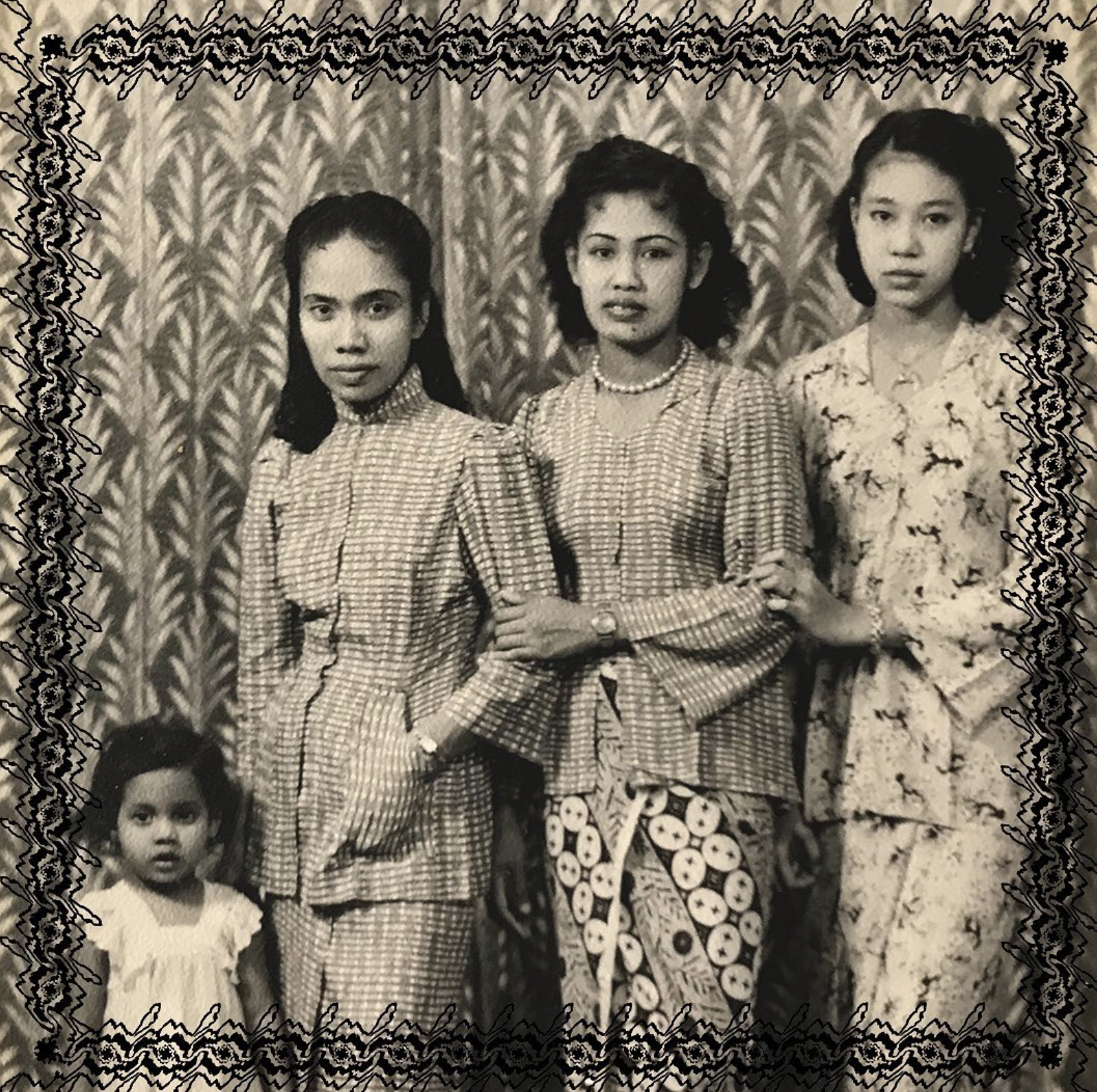
How has growing up as Swedish-Malaysian shaped your worldview? Where do you feel most at home?
I think growing up between these cultures has freed me from a need or desire to feel “part of” a community in a way where my whole identity is defined, understood, or even perceived. I know a lot of people of mixed background say they feel lost or confused or like they’re never enough of something to feel they are accepted or can claim aspects of their identity. But I feel that it is the particular experience and perspective, unique to me, of how I have interpreted elements of my history and heritage that defines me, more than the objective facts of my provenance. We can never fully inhabit something so ungraspable and shifting as a culture, much less so if we can’t speak the language or haven’t grown up in a place. I left Sweden when I was seven and even though it is a huge part of who I am and how I see the world because my inner child still runs free in the memory of that place, and even though I speak Swedish which allows me to identify and feel a certain closeness, to be able to “be” Swedish in a way I can’t “be” Malaysian for my lack of living there or speaking Malay, as an adult I see how I will always be an outsider to both, and that is what defines my experience of being either. Being absolved from a need to “belong” to a particular place and culture means that I can find home wherever I go. I see a lot of value in hybridity, in multicultural fluidity – it is in multicultural society, in that kaleidoscopic multitude, that I find home. I love both countries and cultures in their distinct ways and I’m grateful to my parents for exposing me to both and teaching me to value points of difference and new experiences in diverse cultures above seeking comfort in the familiar.
All of that said, spending my early childhood years in Sweden really has shaped my soul. I spent a lot of time in the forest and near lakes and rivers. I give credit to Sweden’s culture of appreciation for and closeness to nature for making me who I am. So even in the most remote corners of Sweden – maybe especially there – I feel most at home.
What does a typical morning look like for you? Do you have any rituals, habits, or routines that help you start your day with intention?
I usually wake up around 8. I’ve never been an early morning person sadly. I’m honestly not great at keeping routines or practicing rituals, even though I have tried. I try to make time to meditate but am more inconsistent than I’d like to be. Probably the most important thing for me is starting the day with a good breakfast, because preparing food and eating really is one of my greatest joys. It helps me wake up and I’ve never been a quick and easy breakfast type of person. Often I’ll make something using lunch or dinner leftovers, because why not? Weather allowing I’ll always choose to eat outside in the garden when possible. And then I’ll either head to the studio or work from home, usually starting at 10. I don’t see the need to rush and start earlier than that when I work best later anyway.
In a world that’s increasingly digital, how do you create boundaries around your screen use? Do you have any practices that help you stay grounded and present in your offline life?
I’m not great at putting my phone down in my day to day. But when I’m out in nature, especially while hiking, I’m much more present. Time moves differently, you notice all of the small details in the environment – the way time manifests in the tides, the light, or opening buds. I’m not mindlessly scrolling in those moments but even then, I’m often taking photos and videos with my phone. I’ve also tried to make a habit of lighting candles in my room at night and reading before bed to wind down, rather than being on my phone, which feels great. And I refuse to interact with AI when I have a choice, although it’s being integrated into so many systems anyway – but I’ve never used ChatGPT or other forms of generative AI, which at least helps me feel like my mind isn’t fusing with digital consciousness and that my thoughts and ideas are still my own. I try to practice mindfulness and return to myself, be here now, when I notice time slipping away gazing into the screen.
But the one thing I’ve found never fails to ground me in the present in practicing forms of deep work that involve using my hands, as I do while drawing, drafting patterns, draping, and especially sculpting with clay. It stimulates an immediate and fully embodied mind-body-soul connection whose effect seems to linger even after the physical process ends. Working with clay is definitely the most immediate physical way, other than walking in nature, to connect with body and present moment that I have found.
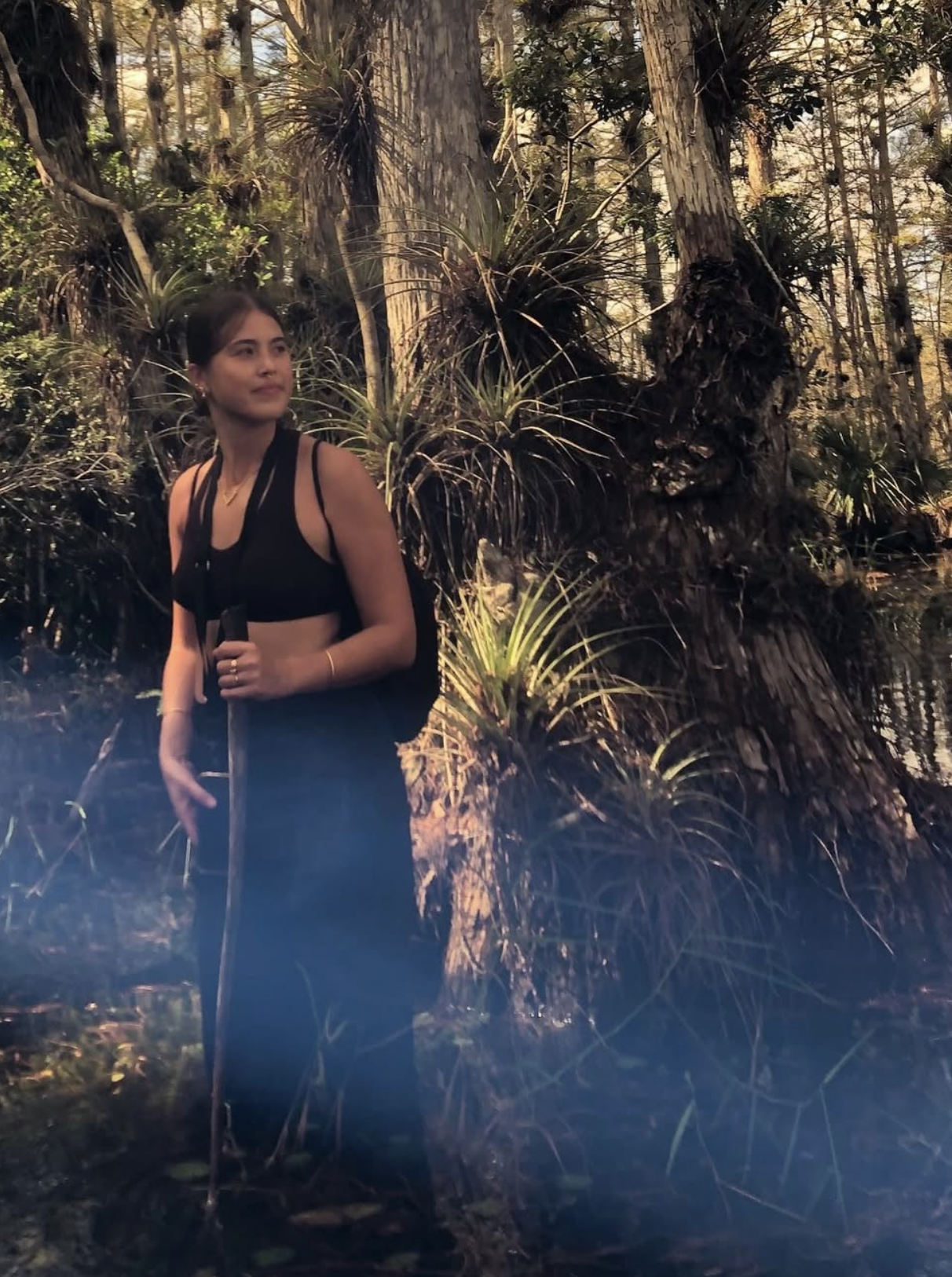
How do you take care of your physical, mental, and emotional well-being? Are there specific practices you return to when you need to reset, recharge, or reconnect with yourself?
At least once a year, usually in the summer, I go on a long multi-day solo hike and wild camp, most often in the region north of the arctic circle which is called Sápmi by the indigenous Sami people. This has become the absolute highlight of my year, and the feeling of freedom, independence, and peace I feel in these days alone in the wilderness is what makes me feel the closest to myself, my truest self, where I feel completely whole and clearheaded and euphoric. This act of reconnecting with nature and spirit soothes me emotionally when I’m going through something difficult or when I’m feeling lost, helps remind me of what truly matters and calms my mind when I’m struggling, and brings me back into my body and offers exercise, endurance training, and fresh air.
When I’m unable to go on these longer excursions, I do the same on a smaller scale – be it a walk in my local woods, or taking a train to walk along the coastal cliffs for the day. Whenever I have free time, I will usually prioritize time outdoors over other activities.
What do you do to stay connected to nature?
Seek it out wherever I may find myself. Every place has its own specific geology, flora, and fauna. Being open to the story the local environment is always telling about itself – paying attention and tracing waterways, turning stones, climbing trees, and walking far – has brought me moments of magic even in the most barren and bleak cities. You can never completely pave over nature; it finds a way. A small community garden surrounded by concrete, parking lots and tower blocks has the same spiritual value as a mountain. A tree growing in the ruins of an abandoned building is the same nature that we meet in a forest. What matters is understanding it is always there to meet you where you are.
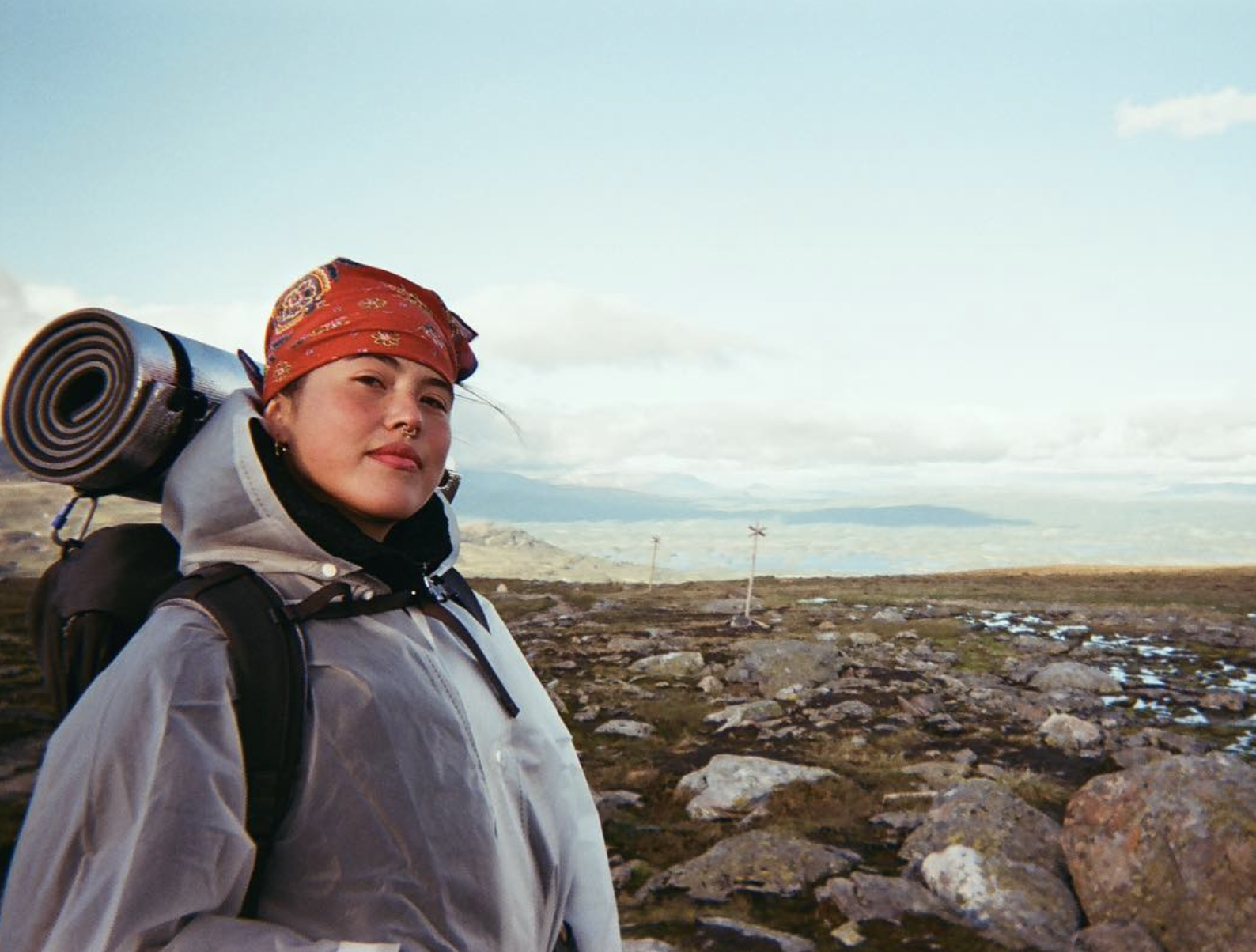
Can you tell us about your brand? What struggles have you faced building the brand?
I run the eponymous slow fashion label Azura Lovisa, exploring hybridity and transcultural flows while crafting a contemporary mythology people can inhabit. The designs are seasonless, gender fluid, and focus on sustainable, natural, handwoven and hand dyed textiles. Inspired by the unpredictable things that occur at seams of culture and difference, Southeast Asian aesthetic traditions are interpreted via a Scandinavian design approach, through a postcolonial perspective. My research spans across archives and hidden histories, traditional craft and folk dress, folklore and mythology, ecology, and critical theory. Through the world-building that my label has given space to, I have developed a practice grounded in nature and magical realism.
As with any small independent label, the struggle is to find a balance between artistic integrity and commercial reality, and to be seen and heard. The industry is crowded and loud. When you’re not a particularly loud or trend-driven person, it can be difficult. But I really do believe the right people find you in the end. I think I am at peace with my path and purpose, and have realized that I don’t really want too much. I don’t need the brand to grow into this entity I don’t understand and can’t tame. What I’m trying to build now is something that aligns with my spirit and values, and I’ve come to understand that means staying quite small, reactive, flexible, and honest. I would love to be able to move the studio to the countryside one day, to be able to attract people that want to work with me out into nature, create a circular and nourishing system – “spiritually lucrative” to borrow a term from my friend Jessica Tremaine, who is an incredible ceramic artist – and to find more ways to work with craftspeople, to support traditional artforms, to develop my practice beyond fashion, to foster a community of people who love this kind of clothing for what it says about ways of seeing the world.
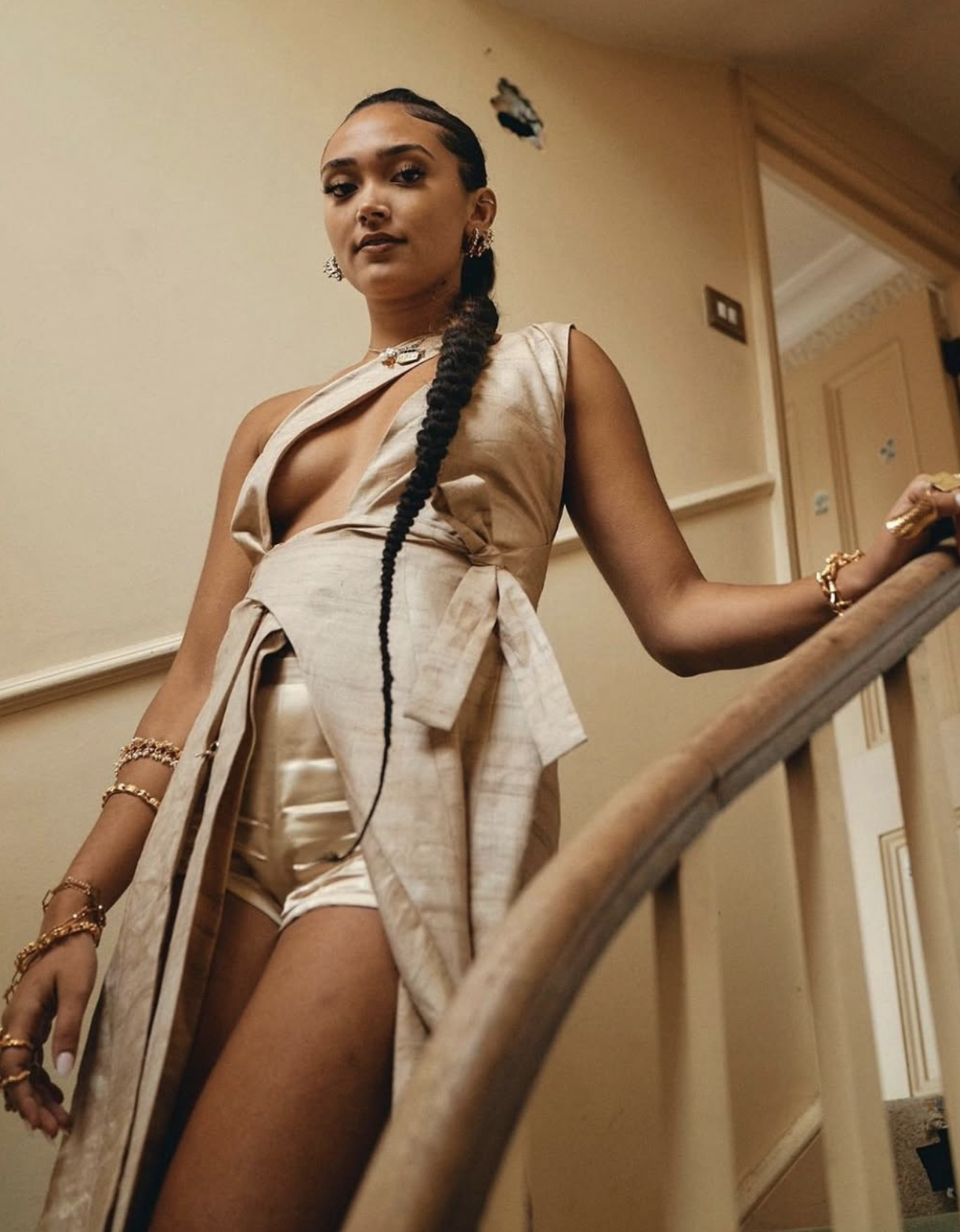

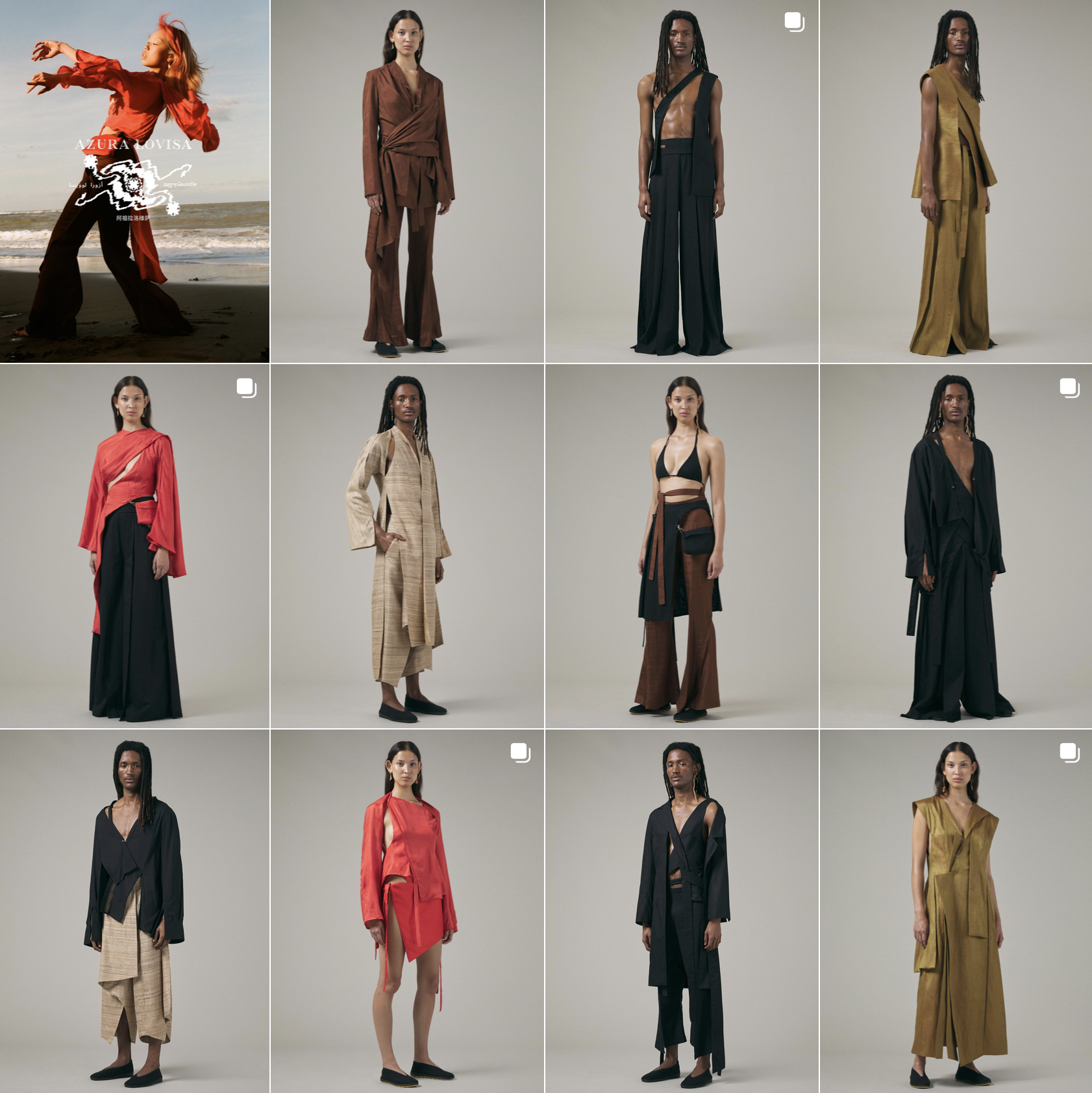

What music do you have on repeat right now?
New and old, friends and favorites, running the gamut across all emotions. Some London and Umeå representation as well. I made a playlist for you, it’s all over the place:
Don’t Play The Fool - DemaeHäntextra - Fricky & The DesktoppersDeus Deus - anaiisBow They Will ! ! ! - Odd NosdamOnce (Demo Version) - GidgeJuicy Bubble - SLICKnBOBBY & Liam BaileySublime - GaikaWhat Wood - Neue GrafikBrev Från Kolonien - Erk & AcademicsThis Is Real - Charles WebsterMoon 2 - Men I TrustDreamer Too - anaiisAnswered Prayers - Elle ShimadaAmöban - Little DragonDance II - Discovery ZoneLong Live The Sahrawi Army - El WaliSpirit Method - Andy HartUntitled Lo - Fi Dubness - Anton LanskiMind - LaksaLevantarse - BambounouHaraka - moktar & Saad El SoghayarI SAID - PaurroDumb Guitar - Mount KimbieElinam - YukimiBe The Good People - The Mighty Tiny & The Many FewSabah Al Noor - douniahWhatever It Takes - Lucinda ChuaRules of School - YukimiEndgame - Angel OlsenNånstans i skogen II - Academics, Erk & Nicole Sabouné
Are there any podcasts you regularly listen to or would recommend?
I like Radiolab, 99% Invisible, This American Life, Stuff You Should Know, Criminal, Cautionary Tales, Throughline, Revisionist History, Death Sex & Money, Ologies, Hidden Brain, Invisibilia, The Last Archive, Rough Translation… Some have been discontinued but there’s plenty of episodes to listen to. True crime is also my guilty pleasure so I like RedHanded and Dateline to scratch that itch.
Would you like to share a go-to recipe you love?
There are many different versions of this recipe, just look up salted egg prawn on Youtube and you’ll find some that are more on the crispy side, some more creamy. This one is sort of in between.
